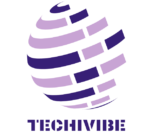If your CPU is very high but nothing shows in “top,” it might be due to hidden tasks. Restart your computer and use tools like “htop” to find these tasks. Also, check for software updates or malware.
Stay tuned with us as we explore what causes a very high CPU load with nothing significant showing in “top.”
What Does 100% CPU Mean On Top?
When your CPU shows 100% on the “top” command, it means your processor is working at its full capacity. This can cause your computer to slow down or become unresponsive. To fix it, close unnecessary programs and regularly check your system’s performance.
Is It Okay For My CPU To Run At 100 C?
No, it’s not okay for your CPU to run at 100°C. This high temperature can slow down your computer and may damage the CPU over time. To keep it safe, make sure your cooling system is working well and keep your computer clean.
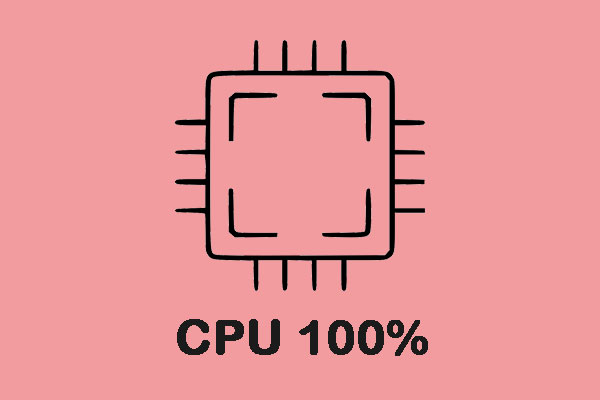
Why Is My CPU Usage So High Without Doing Anything?
Background Processes:
Some programs or system tasks run in the background, using CPU power without you noticing. These can include updates or maintenance tasks.
Malware or Viruses:
Harmful software can secretly use your CPU to carry out unwanted tasks. It’s important to scan your computer regularly to check for malware.
Software Bugs:
Occasionally, software glitches or bugs can cause programs to use more CPU power than they should, even if they seem inactive.
Driver Issues:
Outdated or broken drivers can make your CPU work harder than necessary. Updating your drivers can help reduce unnecessary CPU usage.
System Updates:
When your system is updating, it may temporarily use more CPU power. These updates can run in the background and affect performance.
How To Address High CPU Usage:
- Check Task Manager: Use Task Manager (Windows) or Activity Monitor (macOS) to identify which processes are consuming CPU resources.
- End Unnecessary Tasks: Close unnecessary applications and background processes.
- Scan for Malware: Use reputable antivirus software to scan and remove any malware.
- Update Software: Ensure your operating system and applications are up to date to fix bugs and optimize performance.
- Monitor System Performance: Regularly monitor CPU usage to catch any unusual spikes and address them promptly.
Read: Question About % CPU From Top Command – A Complete Guide Of 2024!
Is More Than 32 GB Ram Overkill?
No, more than 32 GB of RAM is not overkill for heavy tasks like video editing or running many programs at once. For everyday use, like browsing or office work, 16-32 GB is usually enough. Consider your specific needs before deciding.
What Is A Good CPU Load Average?
Yes, a good CPU load average is between 50% and 70%. This range means your CPU is handling tasks well without being overloaded. Staying in this range helps keep your computer running smoothly and avoids issues like overheating or slowing down.
Does A Faster CPU Increase CPU Utilization?
Yes, a faster CPU can increase CPU utilization because it processes tasks more quickly, which might lead to higher usage. However, for simple tasks, you might not see much difference. The increase in utilization depends on how demanding the applications are.
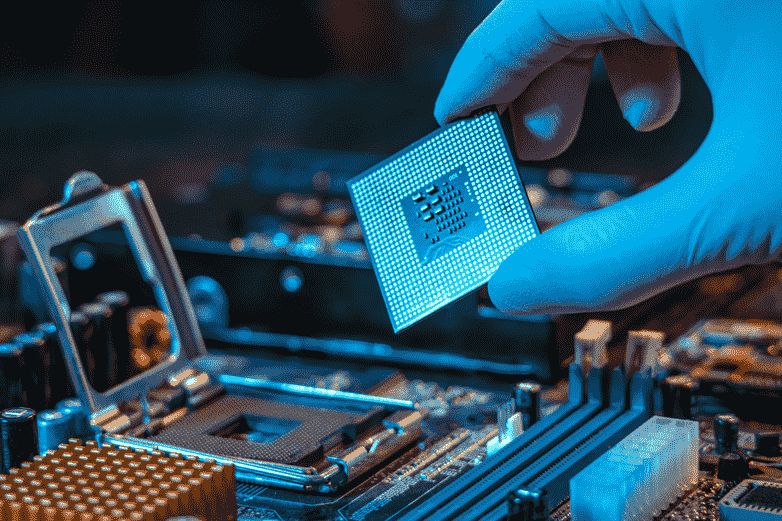
Is 16 GB RAM Enough For Windows 11?
Yes, 16 GB of RAM is usually enough for Windows 11. It supports smooth multitasking and handles common applications well. For more demanding tasks like gaming or video editing, you might need additional RAM.
Is 100% CPU Utilization Bad?
Yes, 100% CPU utilization is bad. It means the CPU is fully used, which can slow down your computer and cause overheating. This can harm your computer over time. Try to close unnecessary programs and check for issues to prevent this high usage.
What Is The Difference Between Cpu Load And Cpu Utilization?
CPU Load:
- Definition: CPU load measures the amount of processing work being handled by the CPU at any given moment.
- Indicator: It is often represented as a numerical value or percentage, showing how much of the CPU’s capacity is in use.
- Measurement: Load can be instantaneous (at a specific moment) or averaged over time (like load averages in Unix systems).
- Example: A CPU load of 1.0 means the CPU is fully utilized; values above 1.0 indicate the CPU is processing more than its capacity allows at that moment.
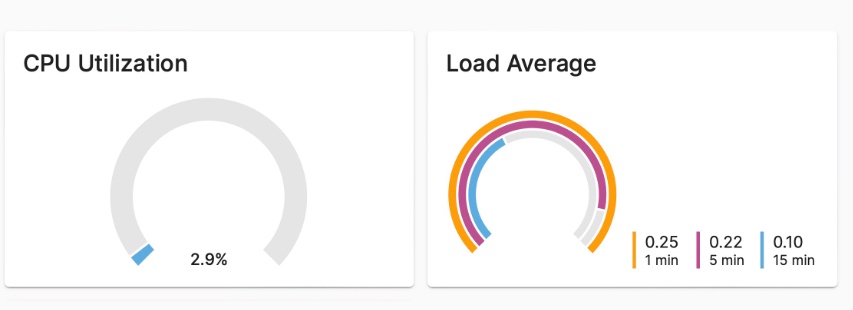
CPU Utilization:
- Definition: CPU utilization refers to the amount of time the CPU spends actively executing instructions versus idle or waiting for tasks.
- Indicator: It is typically measured as a percentage, showing the proportion of time the CPU is actively processing.
- Measurement: Utilization is dynamic and can vary based on the workload. Higher utilization indicates more intensive processing tasks.
- Example: A CPU utilization of 50% means the CPU is actively processing tasks half of the time and idle the other half.
Read: CPU Affinity Android – Complete Guide – 2024!
What Is Optimal CPU Load?
The optimal CPU load is typically below 70-80%. This range means your CPU is working well without being too stressed. Keeping it in this range helps your computer run smoothly and prevents overheating. Regularly check and manage tasks to maintain this balance for better performance.
Does 32 GB RAM Make A Big Difference?
Yes, 32 GB of RAM makes a big difference for tasks like video editing or running many applications at once. It helps your computer run more smoothly and handle more work without slowing down. For basic tasks, 16 GB is usually enough.
Is It Worth Upgrading RAM From 8 To 16 GB?
Yes, upgrading from 8 GB to 16 GB RAM is worth it if you need better performance for multitasking and demanding tasks. It helps your computer run faster and handle more applications at once, reducing slowdowns and improving overall efficiency.
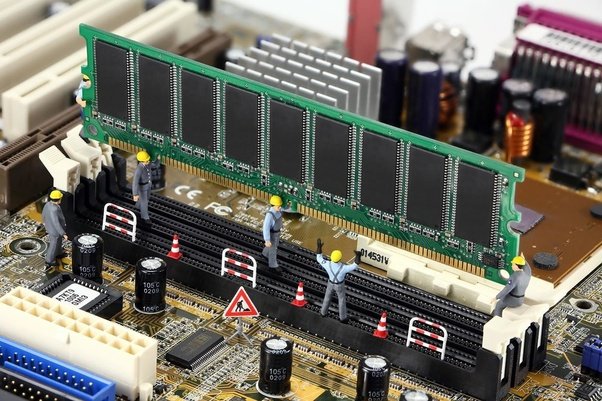
Why Is My CPU Usage Suddenly So High?
- Background Processes: Unseen applications or tasks consuming resources.
- Malware: Infections can use the CPU for unauthorized tasks.
- Software Issues: Bugs or glitches in apps.
- Driver Problems: Faulty drivers may cause spikes.
- System Updates: Running updates can temporarily increase usage.
- Hardware Problems: Overheating or failing components.
Will More RAM Help My CPU?
Yes, more RAM can help your CPU indirectly by providing additional memory for applications to store and access data.
This reduces the need for the CPU to constantly fetch data from slower storage devices like hard drives, improving overall system responsiveness and multitasking performance.
Will I Notice The Difference Between 8 GB And 16 GB RAM?
Yes, more RAM helps your CPU by giving it extra memory to work with. This makes your system faster and better at handling multiple tasks at once. It doesn’t make the CPU itself faster but improves overall performance.
Is It Better To Have More RAM Or Storage?
No, it’s not about having more RAM or storage but what you need more. RAM helps with running programs faster, while storage gives you space for files. For better speed, get more RAM; for more space, get extra storage. Choose based on what suits your needs best.
How To Fix High CPU Usage
To fix high CPU usage, close unused programs, check for viruses, and update your software. You can also adjust your computer’s power settings to reduce load. If the problem continues, restart your computer, or consider upgrading your hardware to handle tasks better.
Read: CPU Usage Drops When I Open Task Manager – Optimize Your Performance!
How To Troubleshoot High Load, When There Are No Obvious Processes
To troubleshoot high CPU load with no obvious processes, check for background tasks or hidden processes using `htop`. Look for hardware interrupts, I/O waits, or kernel-level issues. Use tools like `iostat` or `strace` to identify hidden problems. Also, review system logs for unusual activity.
Why Load Is High Despite The Fact That Neither CPU Or Disk Is Overused
The load may be high due to tasks waiting for resources, like memory or network access, even if the CPU and disk aren’t fully used. Background processes, system calls, or hardware issues can also cause the load to increase without directly affecting CPU or disk usage.
CPU Usage Is 100% But Top Doesn’t Show Any Process Using It
If your CPU usage is at 100% but `top` doesn’t show any process using it, the issue could be hidden processes, kernel-level tasks, or high I/O wait. Check for interrupts, background services, or system logs to find what’s causing the high CPU usage.
Detect Process Eating CPU Without: Top, Htop, Ps?
You can check which process is using too much CPU by using commands like `pidstat`, `iostat`, or `sar`. These tools show you the CPU usage of different processes without needing `top`, `htop`, or `ps`. They help you find the process that might be slowing down your computer.
Getting 100% CPU Usage With No App Running.
If your CPU is running at 100% without any apps open, it could be caused by background processes, a virus, or system updates. Check your task manager for hidden tasks, scan for malware, and ensure all drivers are up to date. Restarting your computer may also help.
CPU Usage Stuck Between 80%-100% Without Any Apps Opened
If your CPU usage stays between 80%-100% with no apps open, it could be due to background processes, a virus, or a system issue. Check Task Manager to see what’s running, scan for malware, and consider restarting your computer or updating your system to fix it.
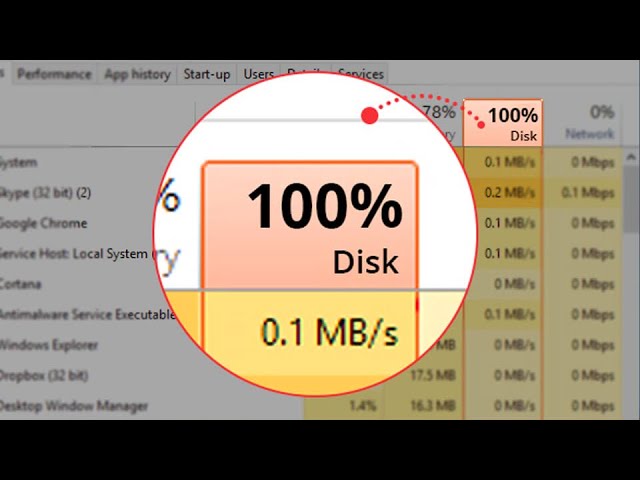
CPU Usage 100% For No Reason
If your CPU usage is at 100% for no clear reason, it might be due to background programs, malware, or a system issue. Check Task Manager to see which processes are using the most CPU. Restarting your computer or updating your software might help reduce the high usage.
Windows 11 High CPU Usage 100% – Fix
If your CPU usage hits 100% in Windows 11, start by closing unnecessary apps and checking for background tasks. Update your system and drivers, run a malware scan, and adjust your power settings. Regularly monitor performance to avoid high CPU usage and ensure your system runs smoothly.
High Load Average, Low CPU Usage – Why?
A high load average with low CPU usage might be due to memory or disk problems. The system could be waiting for data from the disk or struggling with memory issues. Check your disk performance and memory usage to find and fix the problem.
Read: How To Identify CPU Physically – Find Your CPU Today!
Frequently Ask Questions:
1. What could cause a high CPU load with no clear process?
Background tasks or system services might be using CPU without showing in “top.”
2. Can faulty hardware cause high CPU load?
Yes, broken hardware can lead to unusual CPU load even if it’s not obvious in “top.”
3. Why does my CPU load stay high even after a reboot?
Some startup processes or drivers might be causing high CPU usage right after a reboot.
4. How can I find hidden processes causing high CPU load?
Use tools like “htop” or check system logs to find processes not shown in “top.”
5. Can outdated software cause high CPU load?
Yes, outdated or buggy software might use more CPU than expected, not always visible in “top.”
6. Why is my CPU load high but disk usage is low?
The high CPU load could be from processes that are not disk-intensive, like CPU-bound tasks.
7. Could a virus cause a high CPU load with no clear process?
Yes, malware can hide its activities, leading to high CPU usage without showing in “top.”
8. What should I check if a high CPU load persists despite no clear process?
Look for driver issues, and hardware problems, or perform a full system scan for potential issues.
9. How often should I check my system for high CPU load issues?
Regularly check your system, especially after updates or if you notice performance problems.
10. Can system updates cause a temporary high CPU load?
Yes, system updates might increase CPU usage temporarily as they install and configure new changes.
Conclusion:
In conclusion, if you experience a very high CPU load with no clear process showing in “top,” it often means hidden tasks or background processes are the cause. Checking for hidden processes, updating software, or scanning for malware can help. Restarting your computer might also resolve the issue. Regularly monitoring your system can keep performance smooth.
Related Posts:
- CPU Machine Check Architecture Error Dump – Fix Hardware Issues!
- Why Is My CPU Overclocking Itself – Optimize Your Performance!
- Can My CPU Run Windows 11 – Complete Guide _ 2024!
- Is 60c Safe For CPU – Maintain Safe Temps!
